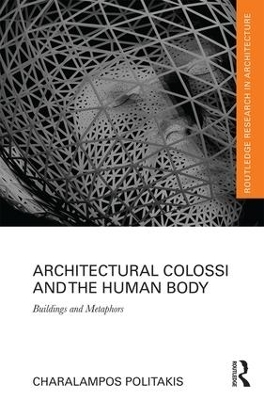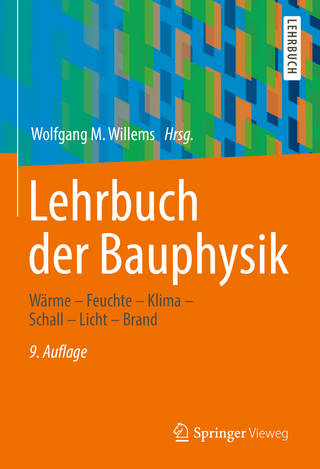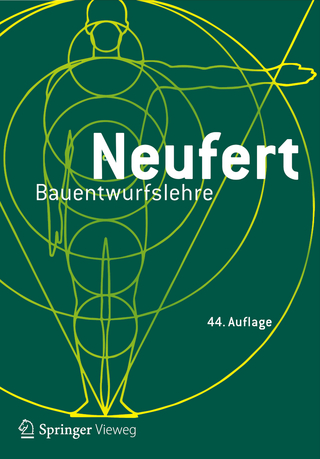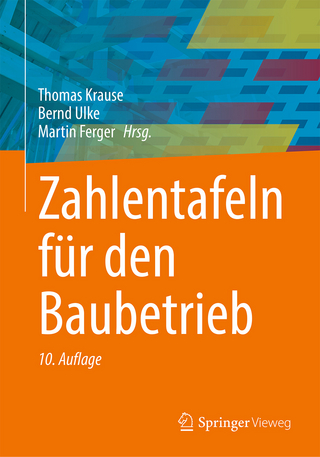
Architectural Colossi and the Human Body
Buildings and Metaphors
Seiten
2017
Routledge (Verlag)
978-1-138-20117-0 (ISBN)
Routledge (Verlag)
978-1-138-20117-0 (ISBN)
This book explores how the human body was an inspiration for the exterior form of architectural colossi through the years.It considers the body as a source of architectural and artistic representation and explores the results of such practices in colossal sculptures and architectural praxis within a philosophical discourse of space, time and media.
The human body has been used as both a model and metaphor in architecture since antiquity. This book explores how it has been an inspiration for the exterior form of architectural colossi through the years. It considers the body as a source of architectural and artistic representation and in doing so explores the results of such practices in colossal sculptures and architectural praxis within a philosophical discourse of space, time and media.
Architectural Colossi and the Human Body discusses the role of Platonic and Cartesian philosophy and how philosophers such as Heidegger and Merleau-Ponty, and theoreticians such as Frascari and Pallasmaa, have seen, described and analysed the human body and the role of architecture and perception. Drawing upon three key case studies and by employing theoretical ideas of Venturi and others, this book will provide an understanding of the role of anthromorphism and the relation and use of the human body with reference to selected architects and artists.
The human body has been used as both a model and metaphor in architecture since antiquity. This book explores how it has been an inspiration for the exterior form of architectural colossi through the years. It considers the body as a source of architectural and artistic representation and in doing so explores the results of such practices in colossal sculptures and architectural praxis within a philosophical discourse of space, time and media.
Architectural Colossi and the Human Body discusses the role of Platonic and Cartesian philosophy and how philosophers such as Heidegger and Merleau-Ponty, and theoreticians such as Frascari and Pallasmaa, have seen, described and analysed the human body and the role of architecture and perception. Drawing upon three key case studies and by employing theoretical ideas of Venturi and others, this book will provide an understanding of the role of anthromorphism and the relation and use of the human body with reference to selected architects and artists.
Charalampos Politakis graduated from the University of Ioannina, Greece (BA) and the University of Salford, UK (MA). He researched his PhD at Manchester Metropolitan University, UK, completing in 2014. He has taught at the Manchester School of Architecture and the University of Central Lancashire, UK. Charalampos is a multidisciplinary artist that has participated in several international exhibitions.
Introduction
1. Towards a First Syllogism
2. Towards a Second Syllogism
3. Fashionable Illusions
4. The Object as Subject: These are not Binoculars
5. Skeletal Apotheosis of the Human Body
6. Complexities and Developments
| Erscheinungsdatum | 23.09.2017 |
|---|---|
| Reihe/Serie | Routledge Research in Architecture |
| Zusatzinfo | 4 Line drawings, black and white; 16 Halftones, black and white; 20 Illustrations, black and white |
| Verlagsort | London |
| Sprache | englisch |
| Maße | 156 x 234 mm |
| Gewicht | 498 g |
| Themenwelt | Technik ► Architektur |
| ISBN-10 | 1-138-20117-0 / 1138201170 |
| ISBN-13 | 978-1-138-20117-0 / 9781138201170 |
| Zustand | Neuware |
| Haben Sie eine Frage zum Produkt? |
Mehr entdecken
aus dem Bereich
aus dem Bereich
Wärme – Feuchte – Klima – Schall – Licht – Brand
Buch | Hardcover (2022)
Springer Vieweg (Verlag)
54,99 €
Grundlagen, Normen, Vorschriften
Buch | Hardcover (2024)
Springer Vieweg (Verlag)
134,99 €


